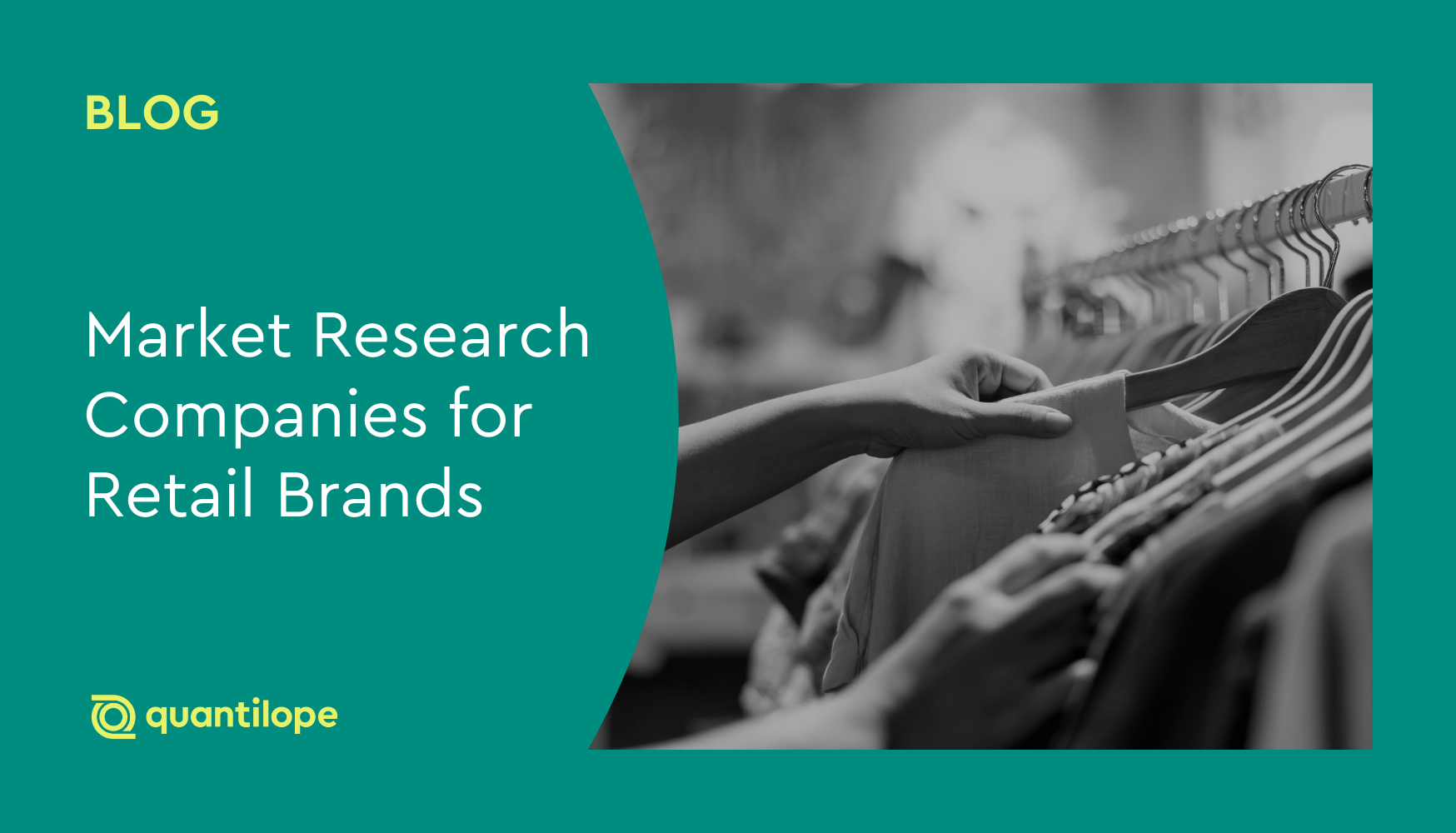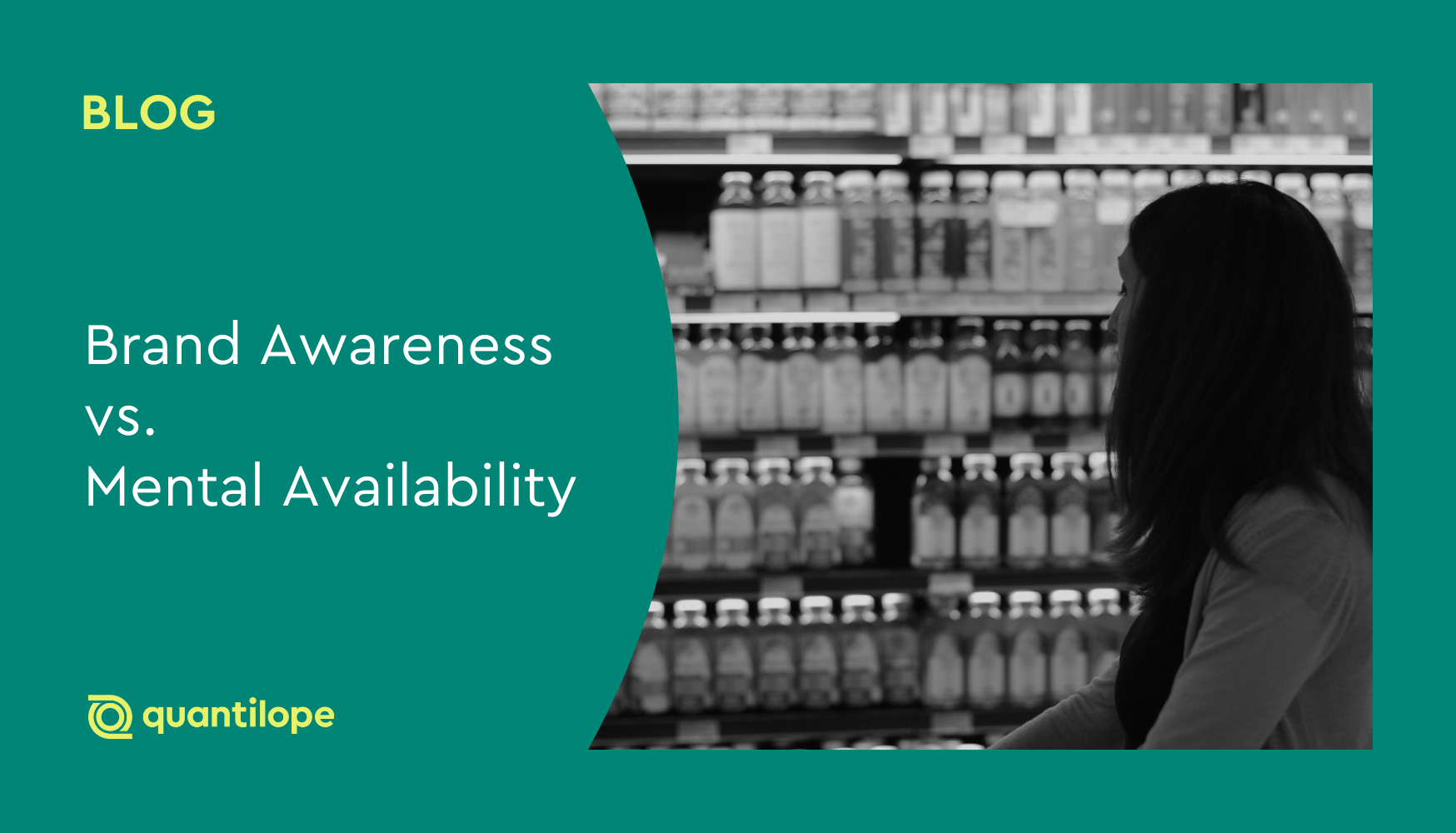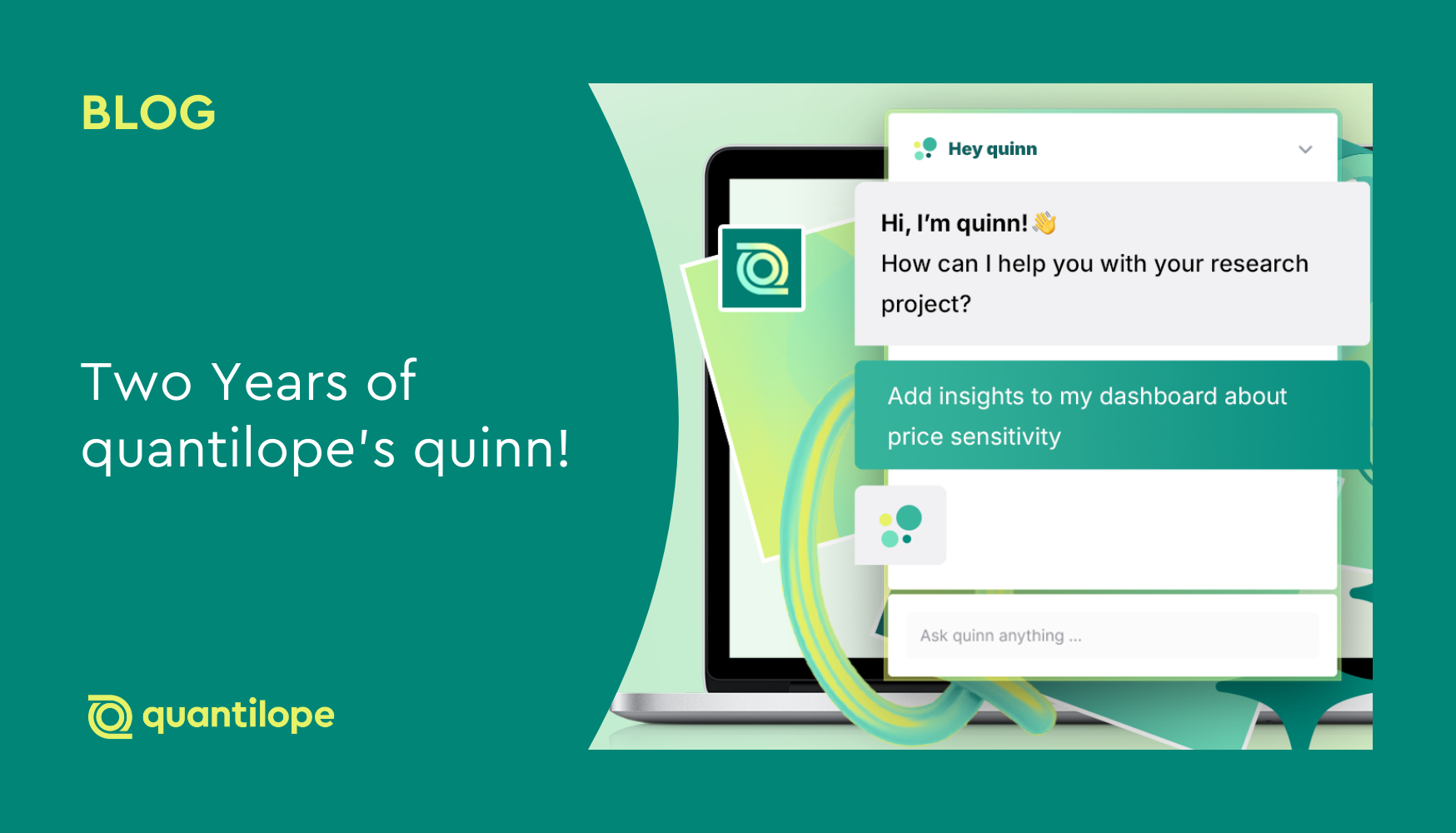In this blog, we will look at why market research is so important in the retail business and how retail brands can best gather the insights they need to succeed.
Table of Contents:
- The importance of market research for retail companies
- Market research companies
- In-house vs. third-party research
- Market research options for retail companies
- Summary
Why is market research important for retail companies?
The retail industry has seen a lot of change recently (with stores prioritizing contactless pickups and online sites) and will surely see more change in the years to come. The era of e-commerce especially has shifted how people shop. Consumers today want to accomplish tasks as quickly and painlessly as possible, and online shopping checks many of those boxes. Being able to order something right from the couch has drastically changed the customer experience for so many.
While online shopping isn’t new, it’s definitely being prioritized now more than ever before - following years of social distancing. With that said, online shopping means fewer consumers are shopping in-store, so brands need to find a way to connect and cater to them without face-to-face opportunities. That’s where market research comes into play for retail brands. Retail businesses that leverage market research to understand the dynamics at play between retail and consumer behavior will be in a position to offer consumers what they want and where they want it.
Beyond channels of selling, there are many more aspects of a consumer’s user experience on an e-commerce site (or their experience in a store) that retailers need to understand if they are to hone their offer successfully. In nearly all economic circumstances, pricing is key - and, even more so during a period of inflation. Consumers are able to be more price sensitive by browsing multiple online sites before purchasing. One way retailers can combat this is by offering a variety of products that cater to different consumer segments - as done through market research segmentation. Another way to sensitize an offer to consumers is through messaging, ensuring a retailer’s messaging reflects the same values, personality, and lifestyle that their target audience (or segments) prioritize; this can be done through an A/B messaging test or by testing the importance of different aspects through a MaxDiff.
There are many ways retailers can leverage market research to effectively reach and retain their audience, and there are several different types of market research companies that can help achieve those studies:
Back to Table of Contents
Types of market research companies
Related: 12 Innovative Market Research Companies & Agencies to Consider in 2026
When deciding to conduct retail market research, where should businesses look? One thing to know is that market research companies tend to fit into four broad categories - each offering slightly different services and angles on research. Before choosing a provider, decide which of these four areas will best fit the needs of your research:
Online market research companies
Online research platforms make it quick and easy to reach survey respondents. The client takes control of launching the study online (with or without help from a research team), and automated research tools take over from there - gathering responses from the sample, analyzing them, and presenting the findings in visual formats like graphs, charts, tables, and dashboards. The beauty of online research is that clients can research just about any subject and reach the appropriate audience for that niche market, and insights are available within a matter of days. Online market research is particularly well-suited to the retail industry because it is simple to achieve a wide-ranging sample of different types of shoppers, either in terms of demographics or attitudes. And, online market research can be just as useful to understand brick-and-mortar store shopping experiences as it is for online sites.
Specialty market research companies
Some market research companies focus on a specific area of customer insights, such as media, advertising, or shopper insights. There are also companies that only conduct quantitative research (larger-scale, numbers-based studies using questionnaires) or only qualitative research (smaller, open-ended, discussion-based projects looking at the emotional nuances and reasoning behind behavior or opinions; done through focus groups, in-depth interviews, and in-store research). There tends to be more involvement from research executives in these kinds of specialty companies, so clients seeking more of a DIY approach might be better suited for an online research platform.
Custom market research companies
This type of company is often full-service; it employs researchers who undertake all aspects of the research, from the initial research proposal to respondent recruitment, fielding, analysis, and reporting. Methodologies can include both quantitative and qualitative approaches. The commissioning client can oftentimes be as involved as they like, but the majority of the to-dos tend to fall on the research partners with limited access to data until the project is complete.
Syndicated market research companies
This type of company conducts quantitative research into pertinent commercial issues, writes reports on the findings, and sells them to any company that wants to buy them. For example, they might produce reports on consumer attitudes to climate change, grocery purchases, or cellphone usage. Syndicated research also includes omnibus research whereby multiple clients can pay to insert specific questions into a survey that goes out to the same set of respondents on a regular basis - this is useful for low-cost tracking purposes.
Back to Table of Contents
In-house vs. third-party research
When choosing a market research firm for your research, it’s also worth considering whether you can keep the research in-house - i.e. use a service that allows you to organize and control the process yourself - or whether you would like to commission a third party to take care of the whole project for you.
The advantage of choosing a third party is that you benefit from research expertise; researchers are not only experts in the research methodologies and in interpreting the findings but are often also experts in crafting compelling business questions for actionable results. However, this kind of expertise and consultation does come at a cost, so your research budget needs to be able to accommodate a higher rate.
Another version of third-party research is secondary research: research that has already been done and exists in the form of government data, industry reports from market intelligence agencies, or in some other published form. Some of these sources are free while others are paid-for. While they can be useful in providing consumer insights, the downside is that they rarely answer all the specific questions a retail business has, as the research hasn’t been done with those questions in mind.
In-house research, on the other hand, allows the client to take more control. Typically the research will be done via an online platform or with a custom research vendor, where the user can choose their sample from a panel of respondents, build their own survey, apply relevant methodologies, launch the research, and then access a report of findings. Two main advantages of this method are that the research is quick and it costs a lot less than research conducted by a third party. Some DIY providers, like quantilope, also offer consulting advice throughout the research process as needed.
Back to Table of Contents
Market research options for retail companies:
1. quantilope
quantilope is an online survey platform that retail clients can use to...
-
Clarify a target market in the retail space; Methodologies like customer segmentation reveal which demographic groups and customer types are most likely to buy into a product or service, and which needs must be fulfilled to bring them on board.
-
Leverage AI-driven automated methodologies for product, service, brand, or communication optimization. For example, a MaxDiff can pin down which features of a product or service (e.g. color, style, functions) are most and least favorable to an audience, or which elements of an advertising campaign grab the audience’s attention to determine the optimal mix of features. A Key Driver Analysis can establish the main drivers of purchase or brand appeal, and a TURF method allows businesses to create a product range that will reach the highest possible number of people in their target audience. These are just a few of the fully-automated methodologies available on quantilope’s platform, all of which can be leveraged by researchers of any background or skill set.
-
Identify promoters of a retail brand. Surveys around an in-store experience or general customer experience help retailers understand how customers feel about a brand. A net promoter score gives an indication of how likely customers are to recommend a retailer to others, which is essentially free advertising for a retail brand.
-
Conduct brand tracking. Tracking studies help keep an eye on trends and needs over time by benchmarking customer attitudes on key metrics and comparing new data back to that reference point. This helps retailers quickly identify and react to any changes in consumer opinion.
These are just a few of the ways quantilope’s Insights Automation Platform provides quick, reliable insights for brands in the retail space.
2. Consumer Price Index (CPI)
If pricing is a brand’s main focus, the Consumer Price Index (part of the U.S. Bureau of Labor Statistics) can shed light on how much consumers pay for certain items. Using this resource for market understanding helps retailers set realistic prices for their brands and stay competitive.
The Consumer Price Index provides monthly information on the prices that consumers in urban areas pay for a group of specific goods and services, including food and energy. Data is available for the US as well as other select geographical regions.
3. U.S. Census Bureau
The U.S. Census Bureau looks at the state of the American economy at a national, state, and local level. Their Economic Census measures American businesses every five years; businesses are required by law to provide information to feed into it, making the survey a reliable and useful tool in retail planning. The U.S. Census Bureau also houses a myriad of other data from social research surveys to leverage for quick-check data points; these studies include a National Survey of College Graduates, a Consumer Expenditure survey, and more.
All surveys from the U.S. Census Bureau provide great support for understanding how population profiles and economic health should inform product development, distribution, and marketing strategies. Their dedicated retail hub gives an indication of how the industry is performing both in the US and internationally.
The Census Bureau reuses data from other agencies to cut the cost of data collection and to reduce the burden on people who respond to our censuses and surveys, making it a great source for clients with lower research budgets.
4. U.S. Small Business Administration
The U.S. Small Business Administration provides support to small businesses and entrepreneurs to maximize their chances of financial success. The information it provides helps companies understand their target market, competitive analysis, and how the economy might affect their business decisions. Beyond business counseling, their site provides an extensive list of free small business data around demographics, economic indicators, income statistics, and more. This resource is a useful and affordable tool for retail start-ups and other retail businesses whose budgets might not extend to complex primary research.
5. D&B Hoovers
D&B Hoovers is a syndicated B2B market research solution, operating under the Dun & Bradstreet company umbrella, providing intelligence on a wealth of organizations, industries, and consumer types. The solution helps retailers find information from an extensive set of business records and also helps align sales and marketing.
D&B Hoovers prides itself on helping businesses drive growth by matching consumer intelligence with a client’s specific business objective. To this end, it sells reports on everything from market trends to the financial health of individual companies. This is a great source of market research for companies looking to leverage syndicated data about other businesses rather than running a primary research study with direct consumers.
Back to Table of Contents
Summary
Market research is vital for retailers. In today’s challenging economic climate, it’s more important than ever to monitor changes in consumer attitudes and behavior and to respond accordingly. In fact, the survival of a business will often depend on it.
quantilope offers an affordable, efficient, and speedy solution to retailers’ business challenges. Unlike traditional market research agencies, clients can take as much control of project management as they would like, yet the research is still tailored to meet each company’s unique objectives. Its automated, data-driven research solutions provide solid foundations to back up retail decisions and ensure high levels of customer satisfaction.
To find out more about how quantilope helps retailers conduct consumer research, get in touch below:




